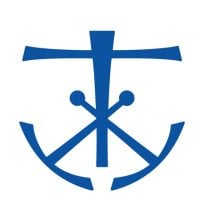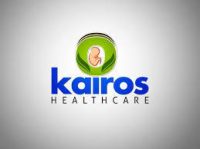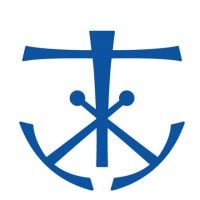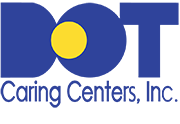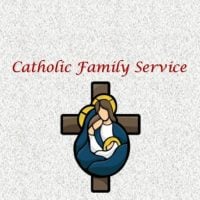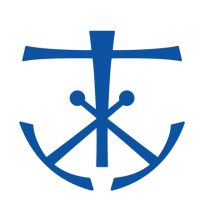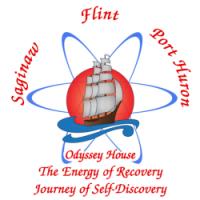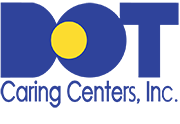Holy Cross Services - Saint Vincent Home
Drug Rehab Center in Saginaw, Michigan
Holy Cross Services - Saint Vincent Home in Saginaw, Michigan is a residential treatment facility providing comprehensive care, education, and support to adults struggling with addiction and mental health issues, offering individualized treatment plans and 24/7 support.
About Holy Cross Services - Saint Vincent Home in Michigan
Holy Cross Children's Services in Saginaw, Michigan, stands out as a faith-based organization offering hope and healing to those struggling with addiction. Its unique approach integrates behavioral healthcare with social services, focusing on individualized care plans, including mental health assessments, counseling, outpatient programs, and life-skill development groups geared towards fostering a productive life free from addiction.
- Individualized Treatment Plans: Tailored plans ensure that each person’s unique needs are met, promoting sustained recovery.
- Comprehensive Care Approach: Combining mental health assessments with skill development workshops and counseling, addressing both the psychological and practical aspects of recovery.
- Flexible Outpatient Programs: Offers standard and intensive options, making treatment accessible to those with varying needs and schedules.
Holy Cross Children’s Services is recognized for its high-quality care, holding CARF accreditation, a testament to its commitment to excellence. This facility accepts private health insurance, making its comprehensive addiction services more accessible to individuals in need.
The facility specializes in treating a range of addictions and related mental health issues, employing evidence-based methods like cognitive behavioral therapy across its treatment offerings. Different levels of care, including outpatient programs and specialized services, cater to the diverse needs of those seeking a life free from substance abuse.
Genders
Ages
Modality
Additional
Accreditations

CARF
The Commission on Accreditation of Rehabilitation Facilities (CARF) is a non-profit organization that specifically accredits rehab organizations. Founded in 1966, CARF's, mission is to help service providers like rehab facilities maintain high standards of care.
Conditions and Issues Treated
Levels of Care Offered
This center offers a variety of custom treatment tailored to individual recovery. Currently available are Inpatient, with additional therapies available as listed below.
Inpatient facilities offer a complete rehab program where the patient stays for an extended period. This allows the staff to monitor the patient on a round-the-clock basis and provide medical assistance if needed.
A significant benefit of inpatient rehab is that it allows for a safe environment for treatment. The patient doesn’t have access to drugs or alcohol, and they’re surrounded by people that want them to succeed and change their lives. Treatment starts with detox and behavioral therapy, followed by group therapy and family involvement.
Therapies & Programs
Individual Therapy is a crucial component of addiction recovery. Therapists work with patients to identify the root of their addiction and figure out how to better handle the issues that led to them using drugs. Individual Therapy is one on one sessions where people meet with their therapist. Individual therapy provides a safe space for people to open up and discuss personal and sensitive topics which they may not feel comfortable discussing in a group setting.
In this type of therapy, therapists can develop specific solutions for each patient, which helps speed up their recovery process. In addiction recovery, therapy is a crucial part. It allows patients to go deep into their core issues and discover how those problems can be better handled now. Therapy can be performed in individual sessions as well as group settings. In individual therapy for addiction, the patient meets with the therapist one-on-one to focus on the underlying issues of addiction and come up with solutions to prevent future abuse.
Family therapy is a crucial part of drug treatment and getting sober. It is one of the most effective ways to help addicts stay on the path to long-term sobriety. One of the most important parts of family therapy is the relapse prevention plan. During treatment, therapists and doctors will often sit down with the addict and their family to develop a plan if the addict ever feels like they want to use again. This plan should involve steps the addict and family can take together to prevent them from relapsing in the future.
An addict’s family can play a vital part in helping them to avoid relapse because they can spot the warning signs and help them get back on track before it becomes too much of a problem. Family therapy is one of the most effective ways to help addicts stay on the path to long-term sobriety.
Group Therapy is employed by drug treatment centers like Holy Cross Services - Saint Vincent Home to provide the recovering addict with a platform to talk about their feelings and experiences. It also provides for an opportunity to learn from other addicts who have successfully overcome their addiction. It is recommended that all group members be recovering addicts for this type of therapy to work.
This type of therapy involves the use of a variety of therapeutic techniques to help addicts recover from past traumas that might have triggered their substance abuse. During these sessions, therapists will work with the addict to address painful memories and learn how to cope effectively with stressors as they arise.
During these types of sessions, therapists will typically focus on three main goals:
- Identifying and expressing painful emotions associated with past traumas.
- Reducing the effects of stress on an addict’s life by developing more effective coping mechanisms.
- Developing healthy ways of thinking about stressful situations that can help addicts avoid substance abuse issues in the future.
This type of therapy is typically used in conjunction with other types of addiction treatment services. By identifying and dealing with the root cause of addiction, most addicts can overcome their cravings and prevent relapse once they leave rehab.
Many different types of addiction treatment services exist to help addicts safely get sober, but it’s important for recovering individuals to find a therapist or support group that will help them address the root cause of their addiction.
Cognitive Behavioral Therapy (CBT) is an approach and method in psychotherapy. Holy Cross Services - Saint Vincent Home asks people to investigate how their thoughts, including habitual, harmful, and inaccurate ways of thinking, affect behaviors. CBT is based on the idea that rigid, inflexible ways of thinking cause people to have a limited ability to cope with stress, which leads to emotional distress.
Likewise, CBT helps people identify maladaptive behaviors and replace them with more positive behaviors. It makes you look at the way you perceive something and ask: Is this a realistic belief? CBT asks people to look at the role of behaviors and emotional responses and how they may be distressing in one’s life. The goal of CBT is to change the way people think and behave to achieve a more balanced, healthier lifestyle.
Moreover, CBT has been shown to reduce some types of anxiety disorders, depression, and symptoms related to thoughts or actions that are considered harmful.
Life Skills Services provide services aimed at helping people enter into and maintain long-term sobriety. The services are offered at varying levels of intensity, specific to the needs and requirements of each patient. Some benefits of these services are restoring hope and empowerment, enhancing family involvement, increasing patient compliance, and reducing relapse rates.
Training someone on improved life skills allows someone recovering from an addiction to feel more capable of taking care of him or herself. The skills taught in Holy Cross Services - Saint Vincent Home are daily skills that give a better recovery foundation by simply giving the person tools they need to survive.
Payment Options Accepted
For specific insurance or payment methods please contact us.
Is your insurance accepted?
Ask an expert, call (888) 674-0062
Holy Cross Services Associated Centers
Discover treatment facilities under the same provider.
- Holy Cross Services - Queen of Angels in Saginaw, MI
- Holy Cross Services - Corcoran House in Mount Morris, MI
- Holy Cross Services - Bowman House in Detroit, MI
- Holy Cross Services in Pontiac, MI
Learn More About Holy Cross Services Centers
Additional Details
Specifics, location, and helpful extra information.
Saginaw, Michigan 48609 Phone Number(989) 781-2780 Meta DetailsUpdated April 15, 2024
Staff Verified
Holy Cross Services - Saint Vincent Home Patient Reviews
There are no reviews yet. Be the first one to write one.
Saginaw, Michigan Addiction Information
Michigan has the second-highest rate of drug and alcohol abuse in the nation. Heroin is linked to more than 50% of the state's hepatitis C cases. Marijuana is the drug most often associated with crimes in Michigan, followed by methamphetamines. Opioids alone are responsible for almost 20% of all drug overdose deaths in Michigan.
Over 115 people per day are hospitalized due to drug-related emergencies in Saginaw, Michigan. Drug abuse can lead to many different problems, including death, injury, property damage, crime, and loss of relationships. According to statistics, 753 admissions to drug treatment centers in 2013. Drug treatment in Saginaw, Michigan, can vary depending on the facility. Treatment is typically tailored to each individual and may last for a few weeks or months.
Treatment in Nearby Cities
- Clarkston, MI (57.5 mi.)
- Chelsea, MI (76.4 mi.)
- Jonesville, MI (104.1 mi.)
- Pigeon, MI (48.5 mi.)
- Imlay City, MI (56.6 mi.)
Centers near Holy Cross Services - Saint Vincent Home
The facility name, logo and brand are the property and registered trademarks of Holy Cross Services - Saint Vincent Home, and are being used for identification and informational purposes only. Use of these names, logos and brands shall not imply endorsement. RehabNow.org is not affiliated with or sponsored by Holy Cross Services - Saint Vincent Home.
